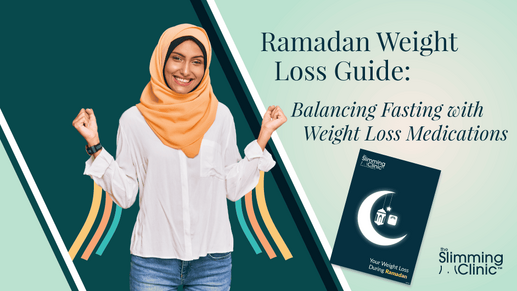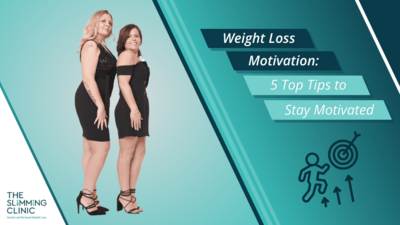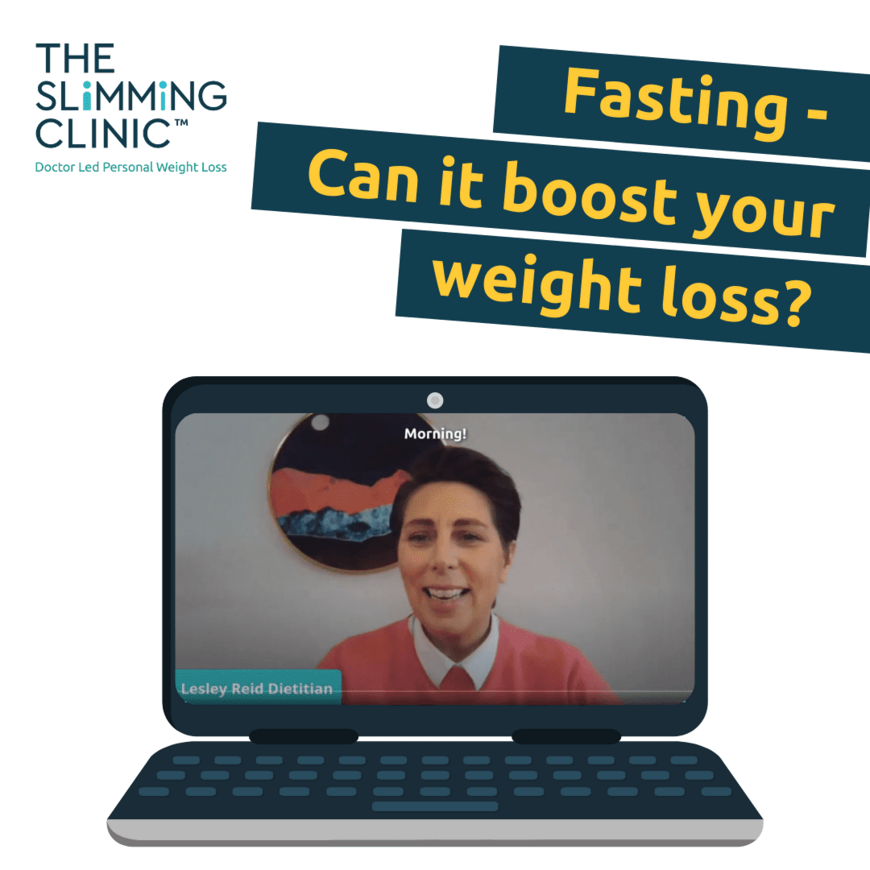Is fasting for weight loss good for you?
Earlier in April, our Dietitian, Lesley Reid did a live video about the latest weight loss diet craze, fasting.
She spoke about intermittent fasting, the types of fasting for weight loss you can do and if fasting holds any weight loss benefits for you.
Here are a few highlights of what she was talking about:
What is intermittent fasting?
The basis of the intermittent fasting involves periods of normal food consumption with planned times of food abstinence for weight loss.
Intermittent fasting is not just that you’ve missed your lunch but more about you’ve planned a period where you’re not going to eat.
Most of us will do a degree of this. Most of us will fast overnight and will break our fast with our breakfast in the morning and that’s really how ‘breakfast’ got its name.
What are the health benefits of fasting?
Like all weight loss diets, intermittent fasting is capable of putting your body into calorie deficit which can cause a short-term weight loss.
When I looked at the studies to when I looked at the information out there, the best evidence came from about eleven random controlled trials at intermittent fasting and nine out of those eleven trials showed no clinical significant difference between the groups in terms of weight and fat loss.
It appeared that there wasn’t any extra benefitto fasting for weight loss.
The people in the study didn’t appear to lose any more weight than the standard way of losing weight and, potentially, there wasn’t any better long term weight loss results with intermittent fasting compared to normal calorie deficit diet and healthy lifestyle.
Are there any side effects with intermittent fasting?
As with any weight loss diet, there are some side effects with intermittent fasting, but really depends on the person.
So, for myself when I’ve tried to do intermittent fasting, my body doesn’t like it. I also have had clients who’ve tried intermittent fasting and a few of them have said they feel it affects their mood.
They find that they’re ‘hangry’ and they find it hard to concentrate.
And that just means that those clients respond differently to when there’s lower blood sugar levels so maybe don’t function just as well on this type of weight loss diet.
However, on the other hand, I’ve also had clients that have said that they feel that they had increase in concentration, they could think clearer, they felt that their mood was better.
So it really just depends on the individual and whether you feel that it’s something that you can tolerate.
Who should or shouldn’t fast?
Again, as intermittent fasting can cause side effects, there are some people who should be cautious when it comes to fasting for weight loss.
If you have somebody who’s thinking about conceiving, so if you’re thinking about falling pregnant, if you are currently pregnant or if you’re breast feeding, I wouldn’t advise intermittent fasting.
If you have in the past had an issue with eating and you have had maybe a degree of underlying disordered eating that you’ve had in the past, you have to be very careful when you’re bring in things like fasting because you just have to make sure that it doesn’t trigger off any of those negative connotations with eating.
And also if you’re on medication that requires to be taken at specific times with food, again this is something you’d have to discuss with your doctor. Is it suitable for you and for your medication?
What should I be doing, if I want to try fasting?
If you’re planning to try fasting for weight loss, do your research and see which fasting diet could be best for you.
What I would say is you need to make sure that every meal counts so you need to make sure that you’re not just eating anything, but getting good quality in your meals, to help with your periods of fasting.
Get your main part of meals based on protein so that’s beans, lentils and pulses, tofu, Quorn, meat, fish, chicken, yoghurts, eggs because you get more from protein. It will give you a degree of satiety.
If you’ve got a higher amount of protein in meals, you’re going to feel fuller, so you’re not going to feel just as hungry when you’re fasting.
Also maximise your vegetables and especially your green, leafy vegetables.
And if you are going to have any carbohydrates, you want to make sure that they’re whole grain.
Things like oats, wholemeal pasta, wholemeal rice, things like quinoa, buckwheat, pearl barley, they will give you carbohydrates, but they will also give you fibre and they’ll take longer to be released.
And that combination of fibre plus protein is going to make you feel fuller for longer.
Is fasting right for you?
If fasting is right for you, is a question you need to pose to yourself.
If you’re considering trying, answer these questions:
- What does your natural pattern of eating look like?
- How do you enjoy eating?
- Where does your hunger come in as well?
- Are you going to keep it up long-term?
- Will this be something you will be doing in a years’ time?
- Or is this a short term thing?
- How are you going to maintain that weight loss when you go back to a degree of normal eating?
Fundamentally, fasting has got to work in with your lifestyle long term.

Weight Loss Myths: BUSTED!

Nutrition and Hydration Week: How Food & Hydration Aid Weight Loss

How Sleep Affects Weight Loss – World Sleep Day 2025

Ramadan Weight Loss Guide: Balancing Fasting with Weight Loss Medications

12 Christmas Weight Loss Tips

Weight Loss Motivation: Stay Inspired to Achieve Your Goals
Looking to start your weight loss journey, then take action today!
Book an appointment with one of our GMC-Registered Doctors who are weight loss experts and can ensure you get the best programme for you. Alternatively request your medication online using our online prescription service.


